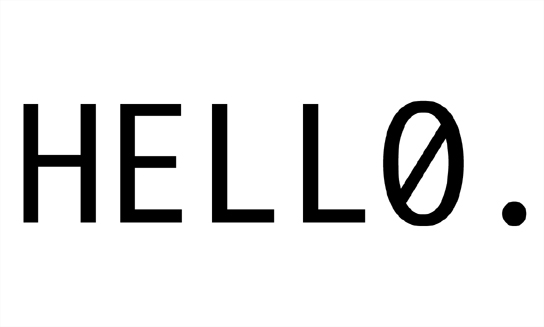Interview with YOUNG-HAE CHANG HEAVY INDUSTRIES
Interview with YOUNG-HAE CHANG HEAVY INDUSTRIES

YHCHI: It's pretty obvious that the "tone" or "voice" of Internet literature is more distant and difficult to "locate" than traditional writing. Mere book packaging tells a lot about the book and the author; browser packaging is generic. Internet writers can either see this as a problem or welcome it as a relief from the critical fashion of reading biography into every aspect of literature.
As for the look of our work, we do what we can. We've never been interested in graphic design (a lot of Web artists--and even writers-- start out or double as graphic artists). There are hundreds of fonts, millions of colors, and we don't know what to do about that.
So to answer your question, no, we can't and won't help readers to "locate" us. Distance, homelessness, anonymity, and insignificance are all part of the Internet literary voice, and we welcome them.
TS: Can you say a few things about your process of collaboration?
YHCHI: We sit in front of our computers side by side on the floor of our tiny pre-World War II Japanese house in Seoul and try to ignore each other. Something inevitably comes up, and the laughs--sorry -- the collaboration process begins.
TS: What do you make of the critical writing out there thus far on Web-based art and Web-based writing?
YHCHI: There isn't much critical writing yet on Web writing. One reason is that it's a young medium. Another is that it's not taken very seriously (i.e., there's no money in it). Still another is that it's more satisfying to create than to criticize.
There's a tendency to read quickly on the Internet. Speed is everything, and densely written texts, be they creative or critical, seem to make the reader anxious -- maybe because of the phone bill. Then again, maybe another reason for the dearth of critical Web writing is that there's nothing to criticize -- Web writing might not be very good.

YHCHI: It's pretty obvious that the "tone" or "voice" of Internet literature is more distant and difficult to "locate" than traditional writing. Mere book packaging tells a lot about the book and the author; browser packaging is generic. Internet writers can either see this as a problem or welcome it as a relief from the critical fashion of reading biography into every aspect of literature.
As for the look of our work, we do what we can. We've never been interested in graphic design (a lot of Web artists--and even writers-- start out or double as graphic artists). There are hundreds of fonts, millions of colors, and we don't know what to do about that.
So to answer your question, no, we can't and won't help readers to "locate" us. Distance, homelessness, anonymity, and insignificance are all part of the Internet literary voice, and we welcome them.
TS: Can you say a few things about your process of collaboration?
YHCHI: We sit in front of our computers side by side on the floor of our tiny pre-World War II Japanese house in Seoul and try to ignore each other. Something inevitably comes up, and the laughs--sorry -- the collaboration process begins.
TS: What do you make of the critical writing out there thus far on Web-based art and Web-based writing?
YHCHI: There isn't much critical writing yet on Web writing. One reason is that it's a young medium. Another is that it's not taken very seriously (i.e., there's no money in it). Still another is that it's more satisfying to create than to criticize.
There's a tendency to read quickly on the Internet. Speed is everything, and densely written texts, be they creative or critical, seem to make the reader anxious -- maybe because of the phone bill. Then again, maybe another reason for the dearth of critical Web writing is that there's nothing to criticize -- Web writing might not be very good.
